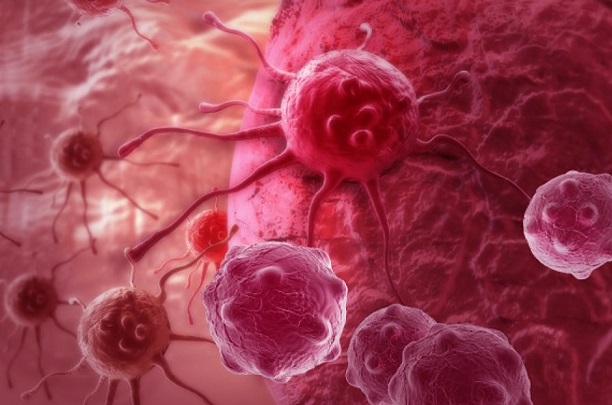Nikhil Prasad Fact checked by:Thailand Medical News Team Aug 25, 2025 5 months, 2 weeks, 5 days, 17 hours, 25 minutes ago
Medical News: A Fresh Approach to a Difficult Cancer
Triple-negative breast cancer (TNBC) is one of the most aggressive forms of breast cancer and notoriously difficult to treat. Unlike other breast cancers, TNBC lacks three common receptors—estrogen, progesterone, and HER2—meaning it does not respond to many standard targeted therapies. Current chemotherapy often struggles with resistance, leaving patients with limited options. This
Medical News report covers a groundbreaking study from researchers at Tsinghua University in Shenzhen, China, who explored a new drug combination that may finally offer hope.
 New Drug Duo Shows Promise in Deadly Triple Negative Breast Cancer
Natural Compounds with Powerful Effects
New Drug Duo Shows Promise in Deadly Triple Negative Breast Cancer
Natural Compounds with Powerful Effects
The study focused on two natural compounds from the Taxus tree family: paclitaxel, a well-known chemotherapy drug, and cephalomannine, a lesser-known but structurally similar compound. On their own, these drugs can slow cancer cell growth, but the research team discovered that when combined, they act much more powerfully. The duo triggered a process called PANoptosis, which is a rare combination of three different types of cell death—apoptosis (cell suicide), necroptosis (inflammatory cell death), and pyroptosis (explosive, immune-triggering death). This multi-pronged attack overwhelmed the cancer cells.
How the Drugs Work Together
Laboratory experiments revealed that paclitaxel and cephalomannine increased oxidative stress inside the cancer cells. This caused serious DNA damage and activated multiple death pathways. Key proteins such as BCL2L1, MAPK14, and TNF were targeted, leading to the collapse of the cancer cell survival systems. Under the microscope, researchers saw that the drug duo not only stopped tumor cells from dividing but also damaged their membranes, forced them into programmed death, and even made them release inflammatory molecules like IL-1β and IL-18 that could alert the immune system.
The effects were not limited to one type of TNBC. The treatment worked strongly on two different TNBC cell lines—MDA-MB-231 and BT-549—suggesting that it may be effective across multiple patient subtypes. Importantly, healthy breast cells showed only mild toxicity at lower doses, meaning potential side effects may be manageable.
Animal Studies Confirm Potential
When tested in mice carrying TNBC tumors, the combination therapy shrank tumors significantly more than either drug alone. The mice tolerated the treatment well, with no major organ damage reported. This strengthens the case for future clinical trials.
What This Means for Patients
The discovery that paclitaxel and cephalomannine can join forces to kill cancer cells through multiple death pathways could be a game-changer in TNBC therapy. By forcing cancer cells into oxidative stress and activating multiple kill switches at once, the risk of drug resistance may be reduced. The approach is especially exciting because both compounds ar
e natural products, and paclitaxel is already widely used in hospitals.
Conclusion
This research opens the door to a new era of combination therapies targeting TNBC, a cancer long considered one of the toughest to treat. If future clinical trials confirm these findings, patients could benefit from a more effective, less resistant treatment option that attacks cancer from several angles at once. The synergy between paclitaxel and cephalomannine demonstrates that sometimes the best way to fight aggressive cancers is to overwhelm them with multiple death signals rather than relying on a single pathway.
The study findings were published in the peer reviewed journal: Antioxidants.
https://www.mdpi.com/2076-3921/14/9/1037
For the latest cancer news, keep on logging to Thailand
Medical News.
Read Also:
https://www.thailandmedical.news/news/harvard-study-finds-that-drug-commonly-used-to-treat-breast-cancer-actually-causes-uterine-tumors
https://www.thailandmedical.news/news/new-breakthrough!-flavonoid-found-to-suppress-key-gene-in-aggressive-breast-cancer-cells
https://www.thailandmedical.news/news/study-warns-that-breast-cancer-incidences-and-deaths-are-rising-exponentially-especially-in-women-under-50
